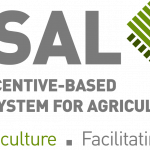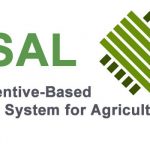More than 1.47 million smallholder farmers across Nigeria are now covered under agricultural insurance schemes, a development expected to boost productivity, improve resilience, and reduce risks in the country’s farming sector. The National Insurance Commission (NAICOM) disclosed the figure during a stakeholders’ retreat in Maiduguri, highlighting significant progress in efforts to de-risk agriculture and support small-scale producers.
The insurance coverage, facilitated through the Nigeria Incentive-Based Risk Sharing System for Agricultural Lending (NIRSAL), has begun to yield measurable impacts on productivity in farming communities nationwide. According to NAICOM, the number of insured farmers is expected to rise to 3.6 million by 2026 as the government and private sector scale up agricultural risk protection programmes.
In the second quarter of 2025 alone, about 250,000 farmers were insured across eight states under federal agricultural initiatives. Data also shows that insured rice farmers in North Central Nigeria achieved 11 per cent higher yields than their uninsured counterparts, harvesting an average of 20 bags per hectare compared to 18 bags.
The commission cited several instances where agricultural insurance has provided a safety net for farmers. Under the National Agricultural Growth Scheme and the Agro-Pocket Programme, compensation was paid to ginger farmers in Kaduna who lost up to 90 per cent of their crops. Similarly, livestock insurance schemes in Sokoto, Bauchi, Adamawa, and Plateau states have helped mitigate losses and reduce farmer-herder conflicts, contributing to greater rural stability.
NAICOM emphasised that strengthening agricultural insurance is critical to unlocking Nigeria’s food security potential and encouraging private investment in the sector. Insurance cushions smallholder farmers — who make up the backbone of Nigeria’s agricultural economy — against climate shocks, pests, and market volatility, enabling them to reinvest and scale their operations.
The commission also called for stronger collaboration among policymakers, insurers, and agricultural stakeholders to ensure effective implementation of the National Insurance Industry Reform Agenda (NIIRA) 2025. The new legislation, signed into law in August, consolidates previously fragmented insurance laws into a modern framework aimed at empowering regulators, protecting consumers, and fostering innovation across the industry.
For Nigeria’s small businesses and rural entrepreneurs, the expansion of agricultural insurance represents a vital step towards a more resilient food system. With risk protection in place, farmers are better positioned to access credit, invest in improved inputs, and contribute more meaningfully to national food security and economic growth.










